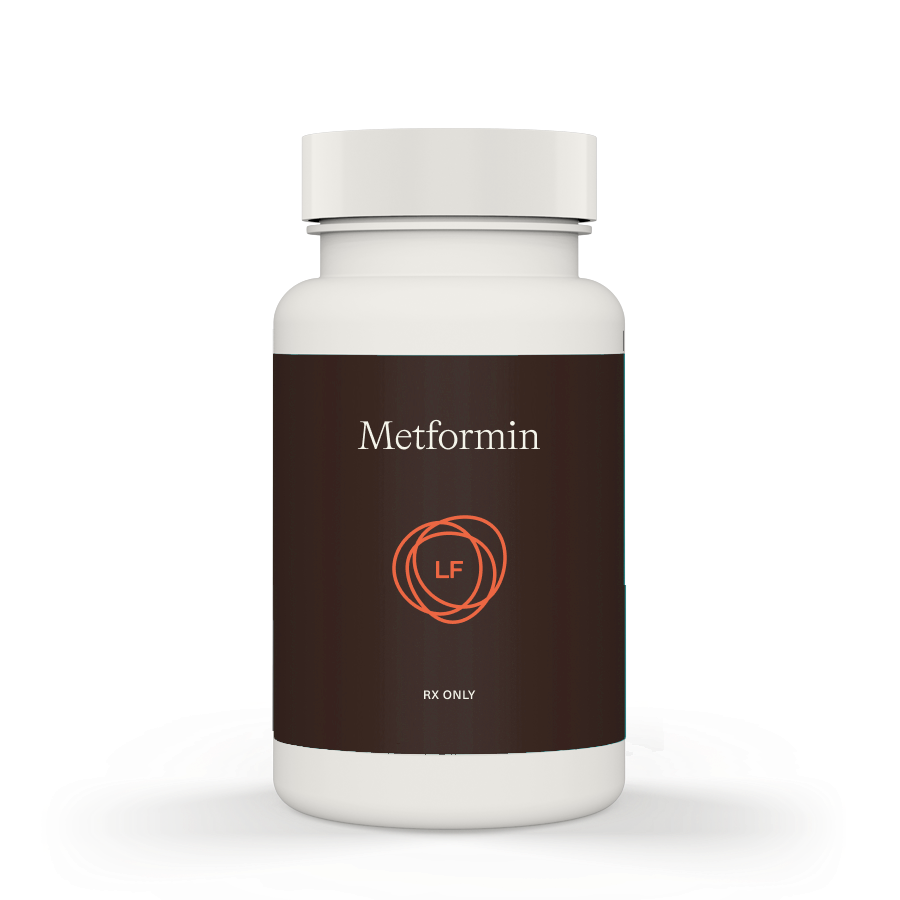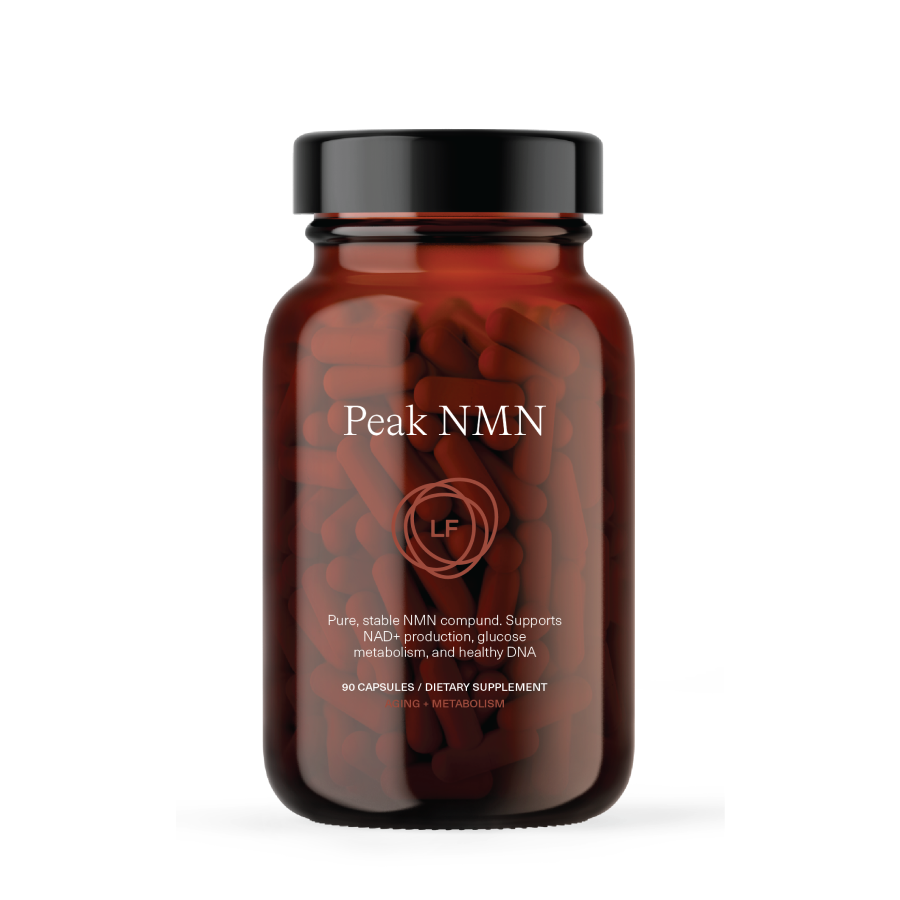| Product Image | Description | Price | Include |
|---|---|---|---|

|
Metabolic Health Panel
Insulin
Glycomark
Adiponectin
Uric Acid
|
$200.00 |
|

|
Sermorelin
Hormone Optimization
Take 2 tablets twice per day with meals. |
$160.00 |
|

|
Metformin
Hormone Optimization
|
$35.00 |
|

|
Peak NMN
Healthspan + Longevity
|
$100.00 $70.00 |
|

|
Omega
Cardiac + Immune
|
$70.00 $49.00 |
|

|
Magnesium
Brain + Muscle
|
$55.00 $38.50 |
|

Dear Brett,
Welcome to Lifeforce and congrats on completing your diagnostic. We’re so glad you’re here! My name is Dr. Dawn Kabba and I’m a board-certified physician passionate about helping people transform their lives. I read in your intake that your 10 year goal is to continue surfing and stay strong, so let's get you there!
Right now we’ll walk through your Diagnostic Report. Your diagnostic also includes a live telehealth consultation with a Lifeforce clinician to go deeper into your results and recommended plan. You will receive an email with a link to book this consultation or you can set that up through the portal.
Our diagnostic provides a comprehensive baseline of how your body is functioning. In your dashboard you’ll see that sometimes levels look to be “in range” but are not in the ideal part of the range. I will make recommendations to move the dial to the optimal end of the range which will benefit your health, longevity, and quality of life. My goal here is to focus on the areas that are having the greatest impact and give you actionable steps to get where you want to be.
I’ve divided your biomarkers into 5 main categories but I want to focus on the top priorities for you which are: Reducing Key Risk Factors for Cardiovascular Disease.There is significant interplay between these three areas but by targeting these in particular, we can improve both your health and your longevity. Let's get started!
Priority 1 : Reducing Key Cardiovascular Risk Factors. When looked at together, these biomarkers give us an idea of your risk for a future cardiac event, stroke, or developing heart disease. It's a much more detailed view than simply checking a cholesterol panel and gives us additional insight into your cardiovascular health.
Principal Biomarkers:
The main risk factors that are of concern and out of range for you are the following: LDL cholesterol, Lipoprotein (a), hs-CRP, and Apolipoprotein B.
LDL is considered the "bad" cholesterol because it is directly correlated with plaque formation and the risk for heart disease and cardiac events. Your level is 120 and we want to lower this value to less than 90, if possible, to mitigate these risks. An optimal level for Lipoprotein (a) is < 75 and your value is 208. Since this value is not affected by your lifestyle and is determined by your genes, there are no specific treatments to lower lipoprotein (a). However, since this tells us that you may be at risk for having a cardiac event in the future, it is important to do what we can to improve your heart and metabolic health. Lastly, Apo B can be a risk factor for future cardiovascular disease. It is important to maintain a healthy weight, a reduced carbohydrate diet and limit your intake of saturated fats. These lifestyle changes have been shown to reduce Apo B levels. Elevations may be due to a high-fat diet and/or decreased clearing of LDL (bad cholesterol) from the blood. Indisputable data support the concept that apoB is a better tool to assess cardiovascular disease than just looking at a regular cholesterol panel. Multiple studies show that Apo B is a better predictor of mortality and heart attacks, especially in people with diabetes or metabolic syndrome, or who are on statin therapy. A target Apo B level is less than 90 and your level is 95.
I’ve divided your biomarkers into 5 main categories but I want to focus on the top priorities for you which are: Reducing Key Risk Factors for Cardiovascular Disease.There is significant interplay between these three areas but by targeting these in particular, we can improve both your health and your longevity. Let's get started!
Best Wishes,
Dr. Dawn Kabba, MD

Greeting
Hi Brett,
It was so great to connect with you again today! Congratulations again on your daughter's wedding – I can only imagine how busy and a little stressful wedding planning must have been, but hopefully, things are calming down a bit for you now.
What We Discussed
We talked about how stressful periods, like planning your daughter's wedding, can sometimes affect our health markers, and why regular retesting is so helpful to understand these changes.
You reconfirmed your desire to continue focusing on your cardiometabolic health, which is a fantastic goal!
We acknowledged the challenges with increasing protein intake, especially since you're not a big meat eater, and the search for protein powders without a lot of hidden sugars.
We also touched on the difficulty of navigating healthy eating when living with others who may have different food preferences or bring less healthy options into the home.
We discussed some simple strategies you can try, like having lemon water before meals or thinking about the order in which you eat your food (veggies first!), to help manage blood sugar.
It's wonderful that you're staying so active – hitting 26,000 steps during the wedding celebrations is amazing!
Your Action Plan
We decided to focus on a couple of key areas that feel most realistic and achievable for you right now:
Boost Your Protein:
Continue aiming for around 100g of protein per day.
I'll send you those links to cleaner protein powder options we talked about.
Consider incorporating protein smoothies (like the Greek yogurt, milk, and protein powder combo) as an easy way to get a good serving of protein.
Increase Your Fiber:
Aim for 20-30 grams of fiber daily from foods like fruits, vegetables, and whole grains.
I'll send over that Mayo Clinic article with lists of high-fiber foods to give you some ideas.
Mealtime Strategies (to try if they fit your routine):
Consider having a glass of lemon water (or a tablespoon of apple cider vinegar diluted in water) before your larger meals.
If it's realistic, try a short 10-minute walk after meals.
Recipe Inspiration:
I'll also upload that Mediterranean meal plan resource to your portal for some new, healthy recipe ideas.
Looking Ahead
You're doing a wonderful job navigating everything, Jennifer, and it's completely understandable that making these changes is a journey, especially with a busy life! Remember, focusing on what you can control is key, and every small step counts.
As we discussed, I'll plan to check in with you via email about once a month to offer support and see how things are progressing. Of course, please don't hesitate to reach out before then if any questions pop up or if you need anything at all. We're here to help!
Sincerely,
Megan Houser
Cardiovascular Risk
Dementia Risk
Osteoporosis Risk
Cancer Risk
Metabolic Risk
Vitamin D is an essential nutrient your body needs to support healthy bones, immune system, and neurological function. When you can’t get enough through food sources (oily fish, red meat, egg yolks, and fortified milk) or exposure to the sun, supplements can help. If you’re over 50, have darker skin, or are obese, these factors will also make it harder for your body to convert sunshine into vitamin D.
Symptoms of vitamin D deficiency can include:
Muscle weakness
Cramps
Bone Pain
Fatigue
Depression
Increase in upper respiratory tract infections





